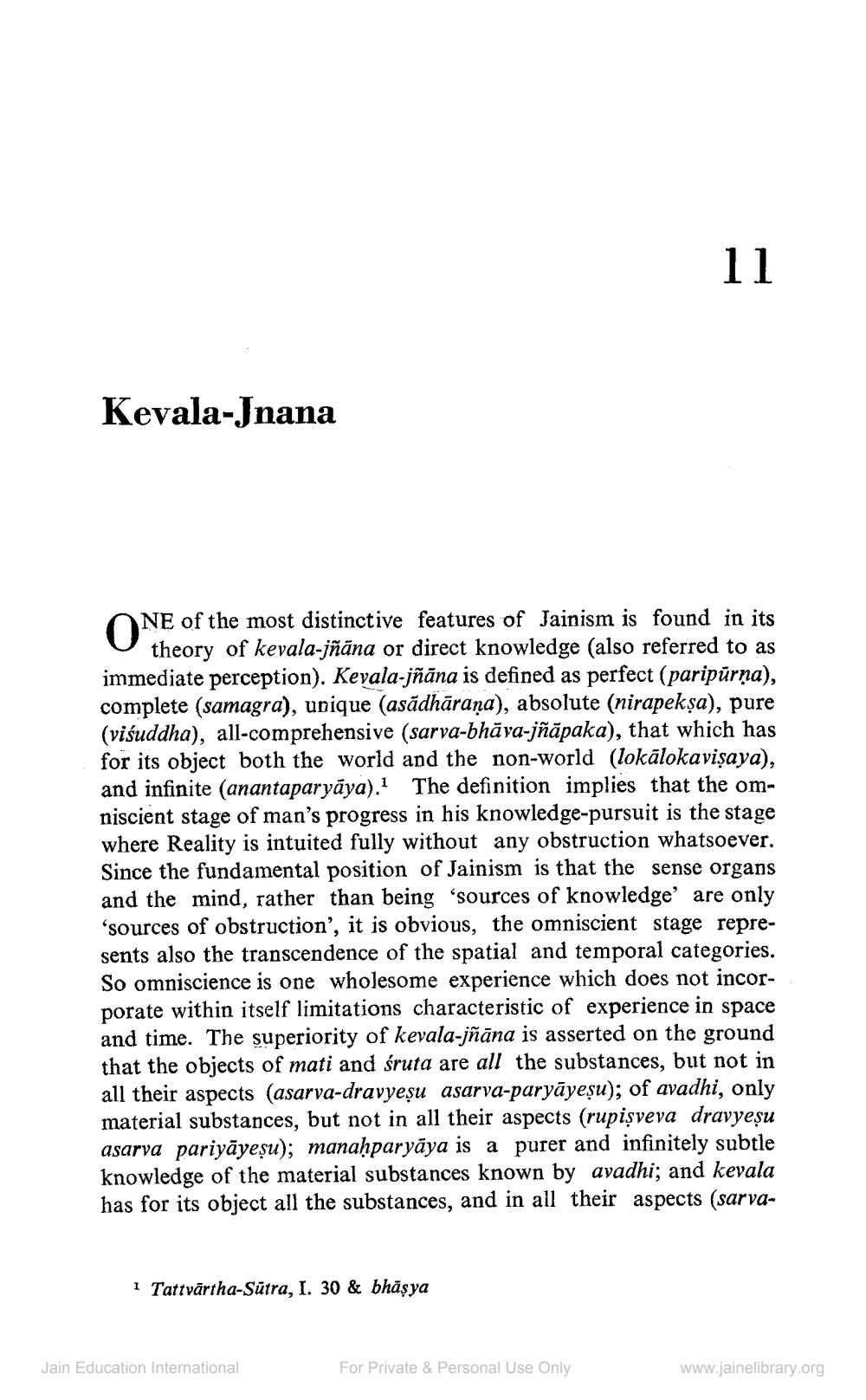________________
Kevala-Jnana
ONE
NE of the most distinctive features of Jainism is found in its theory of kevala-jñāna or direct knowledge (also referred to as immediate perception). Kevala-jñāna is defined as perfect (paripūrṇa), complete (samagra), unique (asādhāraṇa), absolute (nirapekṣa), pure (viśuddha), all-comprehensive (sarva-bhāva-jñāpaka), that which has for its object both the world and the non-world (lokālokaviṣaya), and infinite (anantaparyaya).1 The definition implies that the omniscient stage of man's progress in his knowledge-pursuit is the stage where Reality is intuited fully without any obstruction whatsoever. Since the fundamental position of Jainism is that the sense organs and the mind, rather than being 'sources of knowledge' are only 'sources of obstruction', it is obvious, the omniscient stage represents also the transcendence of the spatial and temporal categories. So omniscience is one wholesome experience which does not incorporate within itself limitations characteristic of experience in space and time. The superiority of kevala-jñāna is asserted on the ground that the objects of mati and śruta are all the substances, but not in all their aspects (asarva-dravyeṣu asarva-paryayeṣu); of avadhi, only material substances, but not in all their aspects (rupiṣveva dravyeṣu asarva pariyāyeṣu); manaḥparyaya is a purer and infinitely subtle knowledge of the material substances known by avadhi; and kevala has for its object all the substances, and in all their aspects (sarva
1 Tattvärtha-Sütra, I. 30 & bhāṣya
Jain Education International
11
For Private & Personal Use Only
www.jainelibrary.org




